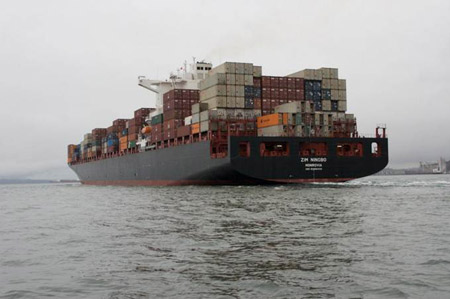Good news for Canadian farmers today: Canadian pork and beef exports to China will resume. Thanks to Ambassador Barton and the Canadian meat industry for their work on re-opening this important market for our meat producers and their families.
China To Resume Importing Canadian Beef And Pork, But Not Canola
Category: Trade

(calgarysun.com) – Alberta’s cattle and hog producers received a major boost Tuesday from news that China will resume imports of Canadian beef and pork products.
But China is still not accepting shipments of Canadian canola, though many in the agricultural community hope Tuesday’s news is an indication a thaw may be coming on that front, too.
The end of the Chinese ban on Canadian pork and beef, which was imposed by that country in June, was announced on Twitter by Prime Minister Justin Trudeau on Tuesday morning. Federal Agriculture Minister Marie-Claude Bibeau and International Trade Diversification Minister Jim Carr said in a statement later in the day that Canadian authorities will be working closely with beef and pork producers and processors in the coming days and weeks to “ensure successful resumption of trade.”
The announcement comes as China struggles with an outbreak of African Swine Fever, which has decimated the country’s hog herds and increased the demand for imported sources of protein.
Before the import ban — which came amid ongoing diplomatic tensions between Canada and China and was implemented after Chinese authorities said a certificate on a pork cargo had been forged — China was a significant market for Canadian hog and cattle producers. In 2018, China was Canada’s third-largest market for pork exports (a value of $518 million), and the country was also growing in importance for beef producers, with the value of Canadian beef exports to China increasing from just under $5 million in 2011 to $82 million last year.
Darcy Fitzgerald, executive director of Alberta Pork, called the announcement “fantastic news.”
“We look forward to our renewed relationship and to supplying our high-quality pork products to the Chinese people,” Fitzgerald said in an email.
Alberta Beef Producers chair Charlie Christie said he expected Tuesday’s news to have an “immediate effect” on livestock markets.
“This is going to have a positive effect throughout the entire system,” Christie said. “We’ll be watching closely, but I believe this should float all boats.”
Christie — who in addition to raising beef also grows canola on his mixed farm near Trochu, about 150 kilometres northeast of Calgary — said many farmers will be hoping that Tuesday’s news on the livestock front means a breakthrough on canola is not far off.
“A lot of people in our industry are multi-commodity producers,” he said. “And I guess if you see goodwill on one commodity, you would hope to see it on another as well.”
Canola, which has not been accepted by Chinese importers since March, was the first Canadian commodity to be blocked by China in the aftermath of Canada’s detention of Huawei Technologies Co.’s chief financial officer on a U.S. extradition request late last year.
It is also the most valuable. According to the Canola Council of Canada, China accounted for approximately 40 per cent of all canola seed, oil and meal exports from this country, with Canadian canola seed exports to China worth $2.7 billion in 2018.
The council said that since market access issues began in March 2019, prices for canola have fallen approximately 10 per cent, translating into $1 billion less for the Canadian economy on an annual basis.
“We hope today’s good news for the livestock industry helps create momentum to restore access for what used to be Canada’s most valuable export to China,” the Canola Council of Canada said in a statement.
Alberta Agriculture Minister Devin Dreeshen said Tuesday’s beef and pork news is a “positive development” but added it’s the canola dispute that has taken the largest financial toll on the province’s farmers.
“There is still the canola issue that is still outstanding, so it’s not a ‘mission accomplished’ moment at all,” Dreeshen said. “It is a positive development … but there has got to be better news coming for our canola farmers as well.”
In his tweet, Trudeau credited Dominic Barton, Canada’s ambassador to China, with helping to reopen the market. Barton was appointed by Trudeau to the position in September.

